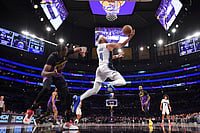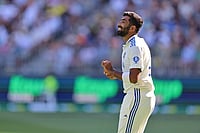Where were you when you learnt that Indira Gandhi had been assassinated?
I first learnt of the incident after hearing about panicking crowds that were assembling all across the city, shouting on the roads. I immediately turned on the television and it was all there for me to see.
When you look back, how do you explain that ill-fated incident to yourself?
According to me, Satwant Singh and Beant Singh, Mrs. Gandhi’s two guards had shot her. They did it under misguided anger, and maybe even some indoctrination. After gunning her down, both threw away their arms and surrendered. Beant Singh was then shot on the spot. I would argue that after a man has surrendered, you cannot shoot him down in cold blood. That is mob justice, but funnily enough it wasn’t even a mob, the guardians of the law were responsible for his death. Beant Singh was an assassin, but even he was entitled to the protection of the law and it created a mystery about the whole thing: Why did they have to kill a man who was already in their custody? There was obviously a religious motivation for the two bodyguards. Everyone knows what the Golden Temple means for the Sikhs, and we also know what had happened in the Golden Temple. It was an invasion and a massacre.
Why did you choose to defend Beant Singh’s uncle, Kehar Singh, and the other accused conspirator, Balbir Singh?
I was not engaged by any of the accused. I did not appear in the case when it was being fought in the trial courts. Some other lawyers had defended them. They were found guilty and sentenced to death. A person who is sentenced to death cannot be hanged until the sentence is confirmed by the High Court, and the High Court then asks the convicts: Do you want a lawyer at the expense of the state? Which lawyer would you want to defend you? So the convicts said that they want the services of Mr. Jethmalani, so naturally the High Court asked for my consent. But in the tradition of our profession, that request is treated as a command. I had no option but to accept. The rest is history. The Supreme Court held that the case against Balbir Singh was false, and according to me, Kehar Singh was convicted on thin evidence. In comparison to Balbir Singh, the case against Kehar was even weaker, but he was eventually hanged in 1989.
The Supreme Court’s decision to hang Kehar Singh, in your mind, was completely wrong then?
There are many wrong decisions by the courts. I don’t wish to contempt, but some of the decisions made by the Supreme Court are terribly perverse.
You must have closely interacted with the accused, Kehar and Balbir Singh. Can you tell us a little more about their mindset at the time?
I hardly interacted with them during the hearing. I had interacted with Balbir after he was acquitted. A grateful client always comes to see you, and thereafter he has almost been a worshipper. Kehar Singh, on the basis of the evidence produced, was totally innocent according to me. People who found him guilty were hopelessly wrong.
The argument against Kehar Singh was that he was responsible for the indoctrination you were speaking about earlier on …
It is a possibility, but when I mentioned indoctrination earlier, I was talking about those who had been indoctrinated. I can say this with surety that there was no evidence of any kind that could prove that it was Kehar Singh who had indoctrinated the assassins. Except that the prosecution claimed that he was at some ceremony where songs were being sung by way of protest against Operation Blue Star. The man was so humble; he used to look after the shoes of the people who entered the gurudwara. That is the work he did. Kehar Singh was a weakly and sick looking man. I don’t think he could even contemplate the murder of an ant. His son, Rajinder Singh, was my stenographer for years.
There were some immediate and negative political consequences for you after you took up the case, weren’t there?
When I took up this case, the BJP threw me out of their party. Secret admirers of Mrs. Gandhi, you see [laughs]. But after the SC’s verdict that one of the men was not involved and that I had saved a man from the gallows, the BJP owed me an apology. I consider it one of my best forensic successes. I have never been sorry that I took up that case. For a lawyer, it is the greatest source of happiness when he is able to rescue someone from the clutches of the hangman.
That was the BJP’s reaction. What about the voices of protest from the Congress?
I remember that when I was made of the Rajya Sabha in 1988, the Congress MPs shouted – Indira Gandhi ke hathyaron ka wakil, usko tum Rajya Sabha main le ke aaye. (The lawyer of Indira Gandhi’s killers. That is whom you have gotten to the Rajya Sabha.) Sitaram Kesri was amidst those shouting. After I had taken my oath, I asked for permission to make a small statement. I asked those Congressmen – Would the soul of Smt. Indira Gandhi be happy if an innocent man is hanged for her murder?
That, in a sense, reminds me of Nehru’s opposition to Nathuram Godse’s hanging. He had argued that capital punishment was at odds with Mahatma Gandhi’s legacy. One could argue that that legacy has been ignored for decades …
I feel that much of the country doesn’t agree with the eye-for-an-eye philosophy. There are just some chaps who seek to prove their loyalty through stupid means. If you ask me, one of these persons was Rajiv Gandhi. When innocent Sikhs were being butchered all across the country, his reaction was – “When a big tree falls, the earth must shake.” And such a man is portrayed as a model Prime Minister of this country!
















